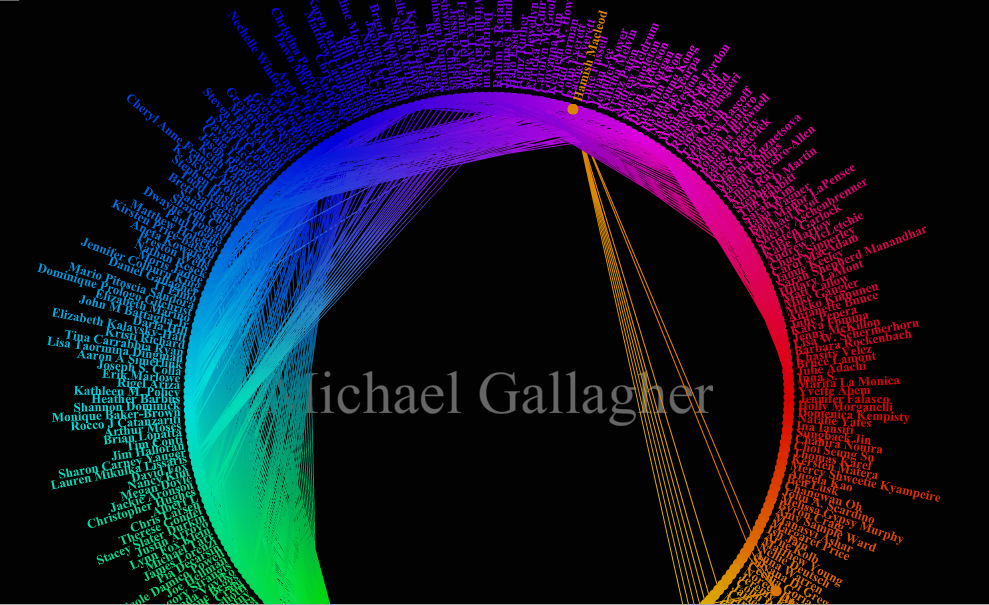Reflect Early and Often
I think it is a critical piece of MOOC participation to critically reflect beforehand on what you want to acquire from the experience and what kind of participation you are committed to make. We all balance schedules, juggle responsibilities, and for most of us, MobiMOOC does not represent something that can have 100% of our attention. So, the first and perhaps most critical piece of learning in general and especially for open learning is to reflect on what you want to learn and what you need to learn. Since the course starts in a few days, it seems a good time to reflect on what type of participant I hope to be.
I do this type of reflection generally on this blog (ad nauseum). This year I also facilitate one of the Week 3 sessions on mobiles for development so I my process of reflection takes on two shapes, that of facilitator and that of participant. In Weeks 1 and 2, I will be a participant and so it seemed appropriate to take a moment and reflect on what type of learning I want to be. This reflection is informed by my past experience with MobiMOOC, my research, and my general interest and work experience.
My reflection process here has a few different steps. First, I brainstorm some particular aspects of mobile learning that interest me and that I know little to nothing about. I want to be exposed to new ideas and applications more than anything else. I then determine what I want to learn that could be directly applied to my research or work. That one is relatively easy.
Social Collaboration: Importance and (Personal Limits)
The next bit is the most important for me. I determine how open I am to new connections and colleagues. This last one might seem a bit odd, to reflect on something so social or spontaneous as a collaborative connection. But it is a conscious choice for me as my networks, while generally open and inclusive, are critical to my research and work. First and foremost, they need to function with some impact and efficiency. So, I do spend quite a bit of time iterating on these networks. Add or prune Twitter connections here, add one research project as another is concluding, that sort of thing. So, consider asking yourself at the onset of this course, what does collaboration mean to you and how receptive am I to receiving the social benefits and time investments required to make this collaboration work? Not an insignificant reflection.
In MobiMOOC 2011, I was open to everything and everyone and I made connections there that have lasted straight through to this year (complete with co-authored papers, presentations, etc.). I was fortunate to meet such good people and I fully expect to meet more this year. But I also want to be realistic in how much time I can spend on aspects of social collaboration. Which is a conundrum as most of the energy, the knowledge construction, the learning itself will take place with your fellow participants. They are your greatest assets in this journey. The facilitators are there to provide some skeleton of a structure, ignite the conversation and pitch in when necessary. Participants drive the show. So, for me as a participant, I will look to actively engage on certain topics, read but not respond to others, and answer a few calls for participation on research projects (if there are any). You can choose to lurk and linger and not say anything (a perfectly acceptable form of participation), but engaging as often as possible is more productive. If only for the connections, the collaborations, and the burgeoning network.
Personal Learning Objectives
So, my reflection here basically summarizes my thinking that I want to learn the following:
Global Issues with mLearning (with John Traxler)
- What does ‘intervention’ with mlearning look like? Is it warranted? In this section, I am hoping to have some discussions on examples from around the world on what successful mlearning projects do to respect/reflect the cultural context in which they work.
- I would love to learn of some non-English examples of mlearning and have a discussion of localization/best practices.
- I would like to explore the possibility of some research networks that could be constructed (with fellow MobiMOOC participants) around these topics. This is where I am most looking to collaborate with others on projects outside the course structure.
- Futures: what does formalized learning look like as technology becomes more ubiquitous/less visible? I think the session on Augmented Reality will touch on this a bit, but I would love to explore some tangential discussions with participants on what they are seeing in terms of mlearning in the future, what impact this will have on the social and cultural structures of their societies. This is a critical reflection for the future of mlearning. What exactly do we want this to be? We can will much of it to happen with clear vision.



[…] Michael for starting off the reflective blogging. Your post got me thinking about my participation in […]
[…] 2012: (My) Learning Expectations MobiMOOC 2012: (My) Learning Expectations. Share […]
Reblogged this on Broken_Heart Blog and commented:
Great idea – will add my thoughts too
[…] Michael and Rebecca have written well on their hopes and objectives. So why shouldn’t I do so too? […]
[…] have written before about MOOCs. I have participated in MOOCs as a student and facilitated one as well. I have published articles about MOOCs, along with my […]
[…] have written about MobiMOOC before here, but for reference it was an open course (MOOC) held in 2011 and 2012 that explored mobile learning […]